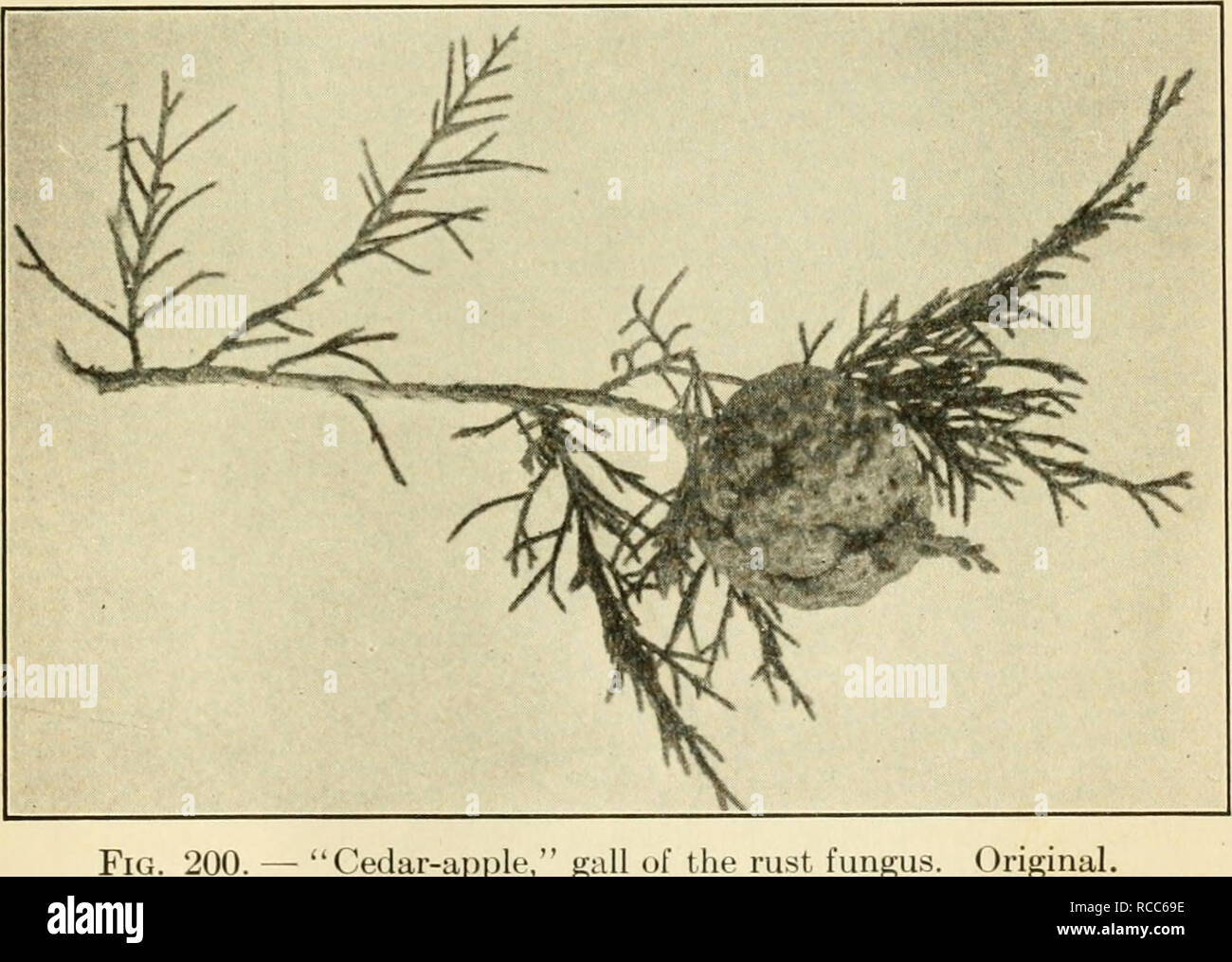. Diseases of economic plants. Plant diseases. Trees and Timber 383 CEDAR, RED {Juniperus) Rusts ^"^ {Gymnosporangium sps.).—Several distinct species of the parasite occur on Juniperus, some of which produce the usual "cedar-apples," others produce cankers or witches-brooms on the branches, or spots on the leaves. They are usually of but small significance to the cedar tree itself unless exceptionally abundant. See apple rust.. Fig. 200. — "Cedar-apple," iingus. Original. White-rot "^"^^ {Fomes juniperinus v. Sch.). — In this dis- ease holes appear in the hea

Image details
Contributor:
Paul Fearn / Alamy Stock PhotoImage ID:
RCC69EFile size:
7.2 MB (326.2 KB Compressed download)Releases:
Model - no | Property - noDo I need a release?Dimensions:
1874 x 1334 px | 31.7 x 22.6 cm | 12.5 x 8.9 inches | 150dpiMore information:
This image is a public domain image, which means either that copyright has expired in the image or the copyright holder has waived their copyright. Alamy charges you a fee for access to the high resolution copy of the image.
This image could have imperfections as it’s either historical or reportage.
. Diseases of economic plants. Plant diseases. Trees and Timber 383 CEDAR, RED {Juniperus) Rusts ^"^ {Gymnosporangium sps.).—Several distinct species of the parasite occur on Juniperus, some of which produce the usual "cedar-apples, " others produce cankers or witches-brooms on the branches, or spots on the leaves. They are usually of but small significance to the cedar tree itself unless exceptionally abundant. See apple rust.. Fig. 200. — "Cedar-apple, " iingus. Original. White-rot "^"^^ {Fomes juniperinus v. Sch.). — In this dis- ease holes appear in the heartwood, extending longitudinally with a partition of sound wood between. These cavities eventually may unite to form tubes throughout the tree. The wood between one cavity and the next is not the normal red, but is somewhat browned, and the holes themselves are coated with a brilliant white lining. The cavities, partially filled with a velvety reddish-yellow mycelium, may be from 4-9 cm. long. The pore-bearing sporophore is hard and. Please note that these images are extracted from scanned page images that may have been digitally enhanced for readability - coloration and appearance of these illustrations may not perfectly resemble the original work.. Stevens, Frank Lincoln, 1871-1934; Hall, John Galentine, 1870-. New York, Macmillan